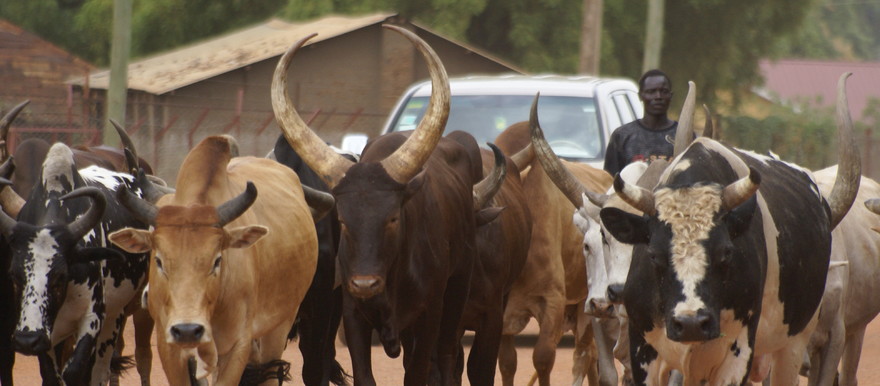Cattle migration conference held in Rumbek

Peacebuilding Opportunities Fund (POF), in collaboration with the Lakes State government, on Monday, organized a two-day internal annual cattle migration pre-dialogue for the Rup community in Rumbek Central County to mitigate conflict.
The conference aims at eliminating conflicts arising from cattle movements and establishing a system for resolving conflicts as they arise.
John Marik Makur, chairperson of the high-level steering committee for peaceful, voluntary dialogue and disarmament in Lakes State, while addressing the over one hundred participants in the conference said they held a meeting with eight sections of the Rup community to discuss with them how the cattle should move to Lolmanyiel wetlands (Toch).
“The Toch grazing area is over flooded by water now but soon the flooding will reduce and the cattle keepers will move for grazing in Lolmanyiel,” Marik Makur said, “This is the reason for conducting a pre-dialogue before the migration of cattle with the community of Rup. Lolmanyiel (Toch) is a place for grazing and fishing for both animals and humans during the dry season.”
Marik Makur said, all this time there have been conflicts between the three communities of Rup, Kuei, and Pakam.
He said the Peacebuilding opportunities Fund (POF) organized this cattle migration dialogue so that when cattle move to Lolmanyiel Toch then people will go and graze their animals peacefully with their neighboring communities.
The Executive Director of Rumbek Central County, Madit Malual Ater urged the Rup community of Rumbek Central County to go and graze peacefully in the wetlands.
“The priority of the government is peace and reconciliation among the communities and this is the reason for conducting dialogue so that peace comes to South Sudan and particularly Lakes State,” Malual Ater said. “We want cattle keepers to go and graze peacefully in Toch-manyiel Lolkou after flooding recedes, without any communal conflicts among themselves.”
He said after they convene cattle migration pre-dialogues with all the five communities of the three counties of Rumbek Central, North, and East, then they will appoint leaders of the cattle keepers who will move with cattle to Toch-manyiel and others will go to Naam-cok for grazing.
Malual Ater advised those still carrying firearms to handover them to the government.
Peacebuilding Opportunities Fund (POF) area adviser, Philip Thon Madit said the onset of the dry season usually starts with communal conflicts in the cattle camps and that is the reason for organizing the dialogue in Lakes State.
“The reason for organizing this pre-dialogue is because the three counties of greater Rumbek are the ones that are engaged in cattle theft, raiding, and revenge killings in the community.” POF’s Thon Madit said.
Benjamin Makur Mabor Yuol, of UNMISS’ Civil Affairs Division, said that the cause of inter-communal conflicts was sheer hatred and lack of sharing of grazing lands and not land ownership.
“We had made conflict analysis over the root cause of the conflict in the community but we have found it to be sheer hatred and sharing capacity for cattle grazing land.” Makur Mabor Yuol said, “The number of domestic animals is huge and that is a reason everyone wants to keep away other communities, while other things related to alcohol, cattle thefts, arms proliferation, and cattle raiding remain triggers.“
The paramount chief of the Panyoon Section of the Rup community Sabit Kuac Manyiel advised the government to regulate the movement of cattle from Toch-Chegic to Lolmanyiel grazing land when the flooding ebbs.
“Now the grass is getting finished in most high land areas in Rornhom and grass in those places where cattle camps are currently located will get burnt while cattle move to Lolmanyiel.” Sultan Kuac said, "The conflicts start when cattle which belong to the Rup community are blocked from Toch-chegic cattle camps such as Aguoc, Wun-yar, Manyiel, Mijong, Akob and Nguenthiang cattle camps by Athoi community.”